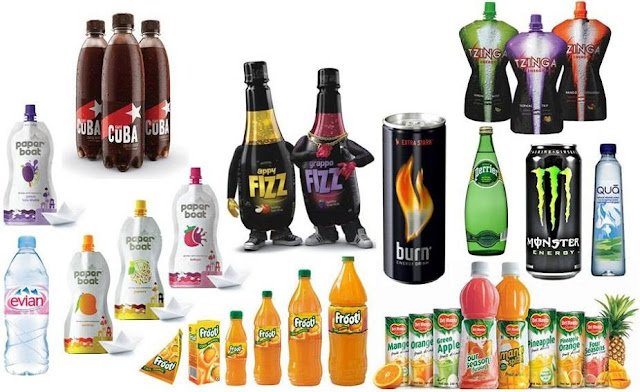Weight Gain/Loss Depends on your Beverage Choice Too
 |
| People are Mobbed with Myriad Beverage Options |
A balance between the calories consumed and
calories burnt is an indicator of a healthy body weight. Thus, energy balance
is most important for weight management in men and women of any age. Individuals
perform some physical activity (calories out) to balance the food and beverages
consumed (calories in). Adding to our already existing eating patterns, our
drinking patterns also pave way for weight problems.
Soft drinks, sports drinks and sweetened tea
consumption have flooded the beverage market and this is a major reason for the
upsurge in calorie intake from beverages. The consumption has almost doubled
since the 1960s and these additional liquid calories are not balanced by
consuming lesser calorie foods or by increased physical activity. These extra
beverage calories result in energy imbalance and weight gain. If you are looking
for a dietitian/nutritionist to shed away the gained weight, you can find
highly talented RDNs at www.firsteatright.com.
So, along with healthy eating choices and
physical activity you need to revisit your beverage habits to maintain a
healthy weight.
Fulfill your thirst quotient while maintaining
the energy balance with these four tips:
Zero-Calorie Water is
the Best Thirst Quencher
Water is the best thirst quencher. With zero
calories, it keeps your overall body hydrated for optimal physical and mental
performance. Every person requires different quantities of water depending on his/her
activity level and body physique. Drink plenty of water for your urine to be
mostly colorless and odor-free.
Individuals Across All
Age Groups Should Consume Milk
Milk should be consumed by both adults and
kids alike for healthy bones, teeth and muscle mass. Milk also reduces the risk
of high blood pressure. Drink fat-free or low-fat milk for minimal fat and
calorie content. Research also claims fat-free milk to be an effective sports
drink.
Restrict Fruit Juice
and Eat the Whole Fruit
Eating the whole fruit or vegetable is always
better than a 100-percent fruit or vegetable juice. Actual fruits and veggies
add more fiber to your body and are satisfying. They are also rich in vitamins,
minerals and fluids. Even though 100-percent fruit juice also contain nutrients,
it’s possible to end up in overdose sometimes.
Be Wary of
Super-Calorie Beverages
Most
of the other drinks such as soft drinks, sweetened teas, fruit drinks and most
sports and “energy” drinks are packed with calories and caffeine too. Coffee
drinks are also high in calories, fat and sugar while alcoholic drinks are
simply filled with empty calories. So how can you minimize the intake of such
drinks?
1.
Read the nutrition
label before choosing your drink. Look out for calories, caffeine, sugar and
fat content of the drink. If you are not able to find them on the label, check
out the company’s website.
2.
Stay away from
“energy” drinks, highly caffeinated beverages and alcohol.
3.
If you still want to
go for the calorie-rich beverages, buy the smallest sized portions. Moderation
is best suited in such cases.


Comments
Post a Comment